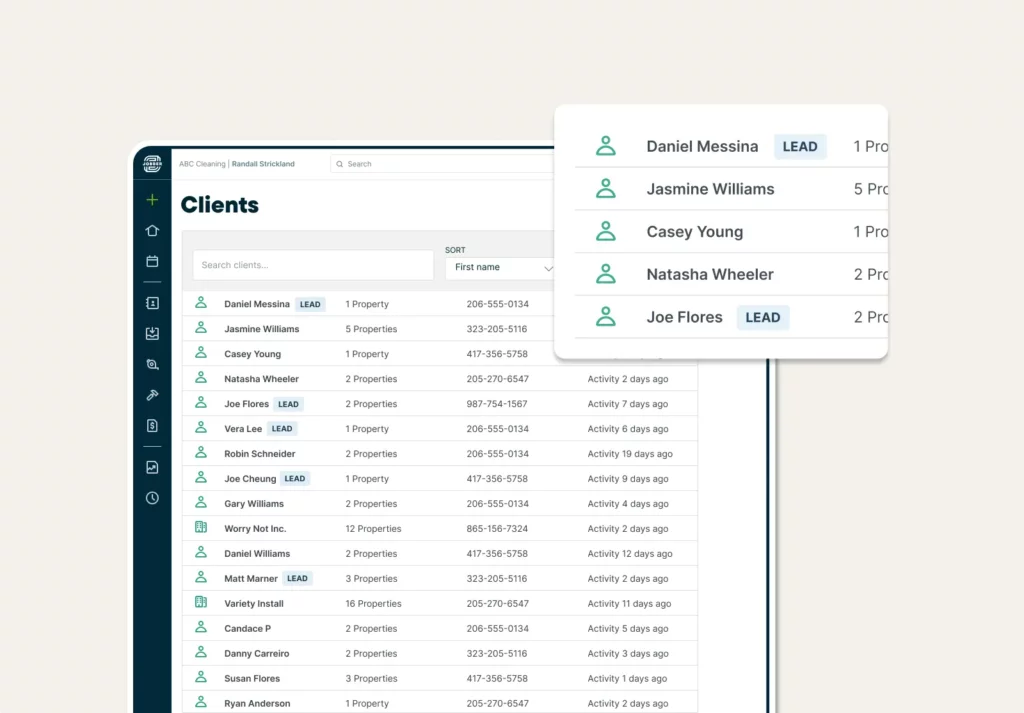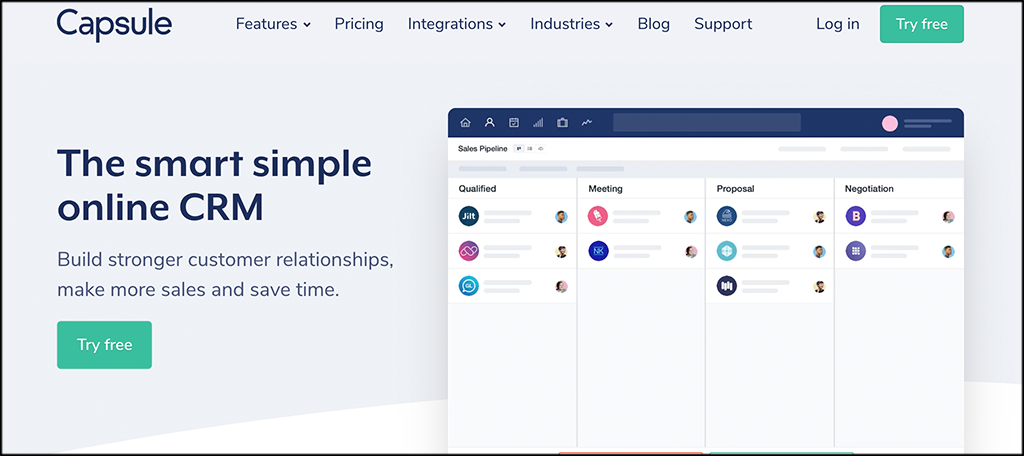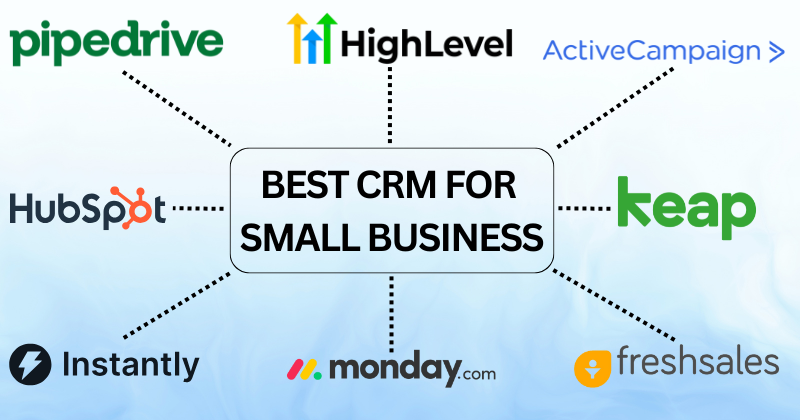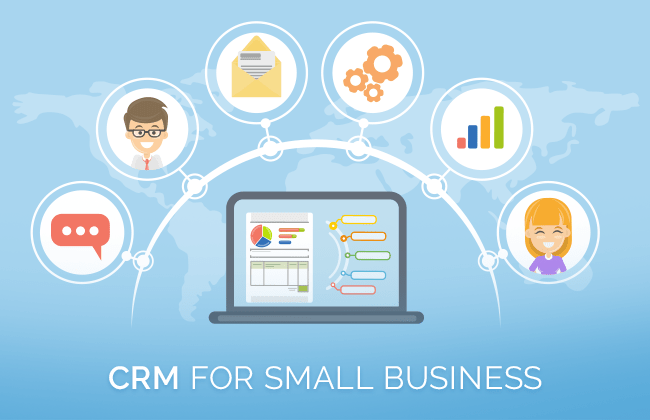Unclog Your Business: The Best CRM Systems for Small Plumbing Businesses in 2024

Running a plumbing business, whether you’re a solo entrepreneur or leading a small team, is a juggling act. You’re not just fixing pipes and unclogging drains; you’re also managing appointments, tracking invoices, communicating with clients, and trying to find new business. It’s a lot to handle, and that’s where a Customer Relationship Management (CRM) system comes in. Think of it as your digital assistant, helping you stay organized, improve customer service, and ultimately, boost your bottom line. But with so many CRM options out there, finding the right one for a small plumbing business can feel like navigating a maze. Don’t worry, though! This guide will break down the best CRM systems, focusing on the features that matter most to plumbers, and help you find the perfect fit for your needs.
Why Your Plumbing Business Needs a CRM
Before we dive into the best CRM systems, let’s talk about why you actually need one. You might be thinking, “I’m a plumber, not a tech guru!” But trust me, a CRM isn’t just for big corporations. It’s a powerful tool that can revolutionize how you run your small plumbing business. Here’s why:
- Improved Customer Management: A CRM stores all your customer information in one place – names, addresses, contact details, service history, and even notes about their preferences. This means you can quickly access the information you need, personalize your interactions, and provide a better customer experience. Imagine knowing a customer’s previous plumbing issues before they even mention them!
- Streamlined Scheduling and Dispatch: CRM systems often integrate with scheduling tools, making it easier to book appointments, dispatch plumbers to jobs, and manage your team’s schedules. This reduces the chances of double-booking, missed appointments, and wasted time.
- Efficient Communication: Keep track of all your communications with customers, whether it’s emails, phone calls, or text messages. This ensures that nothing falls through the cracks and that you’re always on the same page.
- Simplified Invoicing and Payments: Many CRM systems offer invoicing and payment processing features, making it easier to create and send invoices, track payments, and get paid faster.
- Enhanced Marketing Efforts: CRM systems can help you segment your customer base and create targeted marketing campaigns. For example, you could send a special offer to customers who haven’t used your services in a while or remind them to schedule annual maintenance.
- Better Data Analysis: Track key metrics like customer acquisition cost, customer lifetime value, and job profitability. This data can help you make informed decisions about your business and identify areas for improvement.
In short, a CRM can help you save time, improve customer satisfaction, increase efficiency, and ultimately, grow your plumbing business. It’s an investment that pays off in the long run.
Key Features to Look for in a CRM for Plumbers
Not all CRM systems are created equal. When choosing a CRM for your plumbing business, you need to focus on the features that are most relevant to your specific needs. Here are some key features to look for:
- Contact Management: This is the foundation of any CRM. Make sure the system allows you to easily store and manage customer contact information, including names, addresses, phone numbers, email addresses, and any other relevant details.
- Appointment Scheduling and Dispatch: Look for a CRM that integrates with a scheduling tool or has built-in scheduling features. This will allow you to book appointments, assign jobs to plumbers, and manage your team’s schedules efficiently.
- Job Tracking: The ability to track the status of each job, from initial inquiry to completion, is crucial. This will help you stay organized and ensure that nothing gets overlooked.
- Invoicing and Payment Processing: Choose a CRM that allows you to create and send invoices, track payments, and integrate with payment gateways. This will streamline your billing process and help you get paid faster.
- Communication Tracking: Keep track of all your communications with customers, including emails, phone calls, and text messages. This will ensure that you have a complete record of your interactions and can follow up effectively.
- Reporting and Analytics: Look for a CRM that provides reporting and analytics features. This will allow you to track key metrics like customer acquisition cost, customer lifetime value, and job profitability.
- Mobile Access: In the plumbing industry, you’re often on the go. Make sure the CRM has a mobile app or is accessible on mobile devices so you can access your data and manage your business from anywhere.
- Integration with Other Tools: Consider how well the CRM integrates with other tools you use, such as accounting software, email marketing platforms, and payment processors.
Top CRM Systems for Small Plumbing Businesses
Now, let’s explore some of the top CRM systems specifically designed or well-suited for small plumbing businesses. We’ll consider their features, pricing, and ease of use to help you make an informed decision.
1. Jobber
Overview: Jobber is a popular CRM and field service management software specifically designed for home service businesses, including plumbers. It’s known for its user-friendly interface and comprehensive features.
Key Features:
- Scheduling and Dispatch: Robust scheduling and dispatching capabilities, including drag-and-drop scheduling, automated appointment reminders, and GPS tracking of your team.
- Customer Management: Comprehensive customer profiles with contact information, service history, and communication logs.
- Invoicing and Payments: Create and send professional invoices, accept online payments, and track payment status.
- Job Management: Manage all aspects of a job, from quoting and scheduling to completion and invoicing.
- Client Hub: Provides a client portal where customers can view quotes, invoices, and job details.
- Mobile App: Excellent mobile app for both iOS and Android, allowing you to manage your business on the go.
- Integrations: Integrates with popular accounting software like QuickBooks and Xero.
Pricing: Jobber offers a variety of pricing plans based on the number of users and features. They have plans suitable for solo plumbers and small teams.
Pros:
- User-friendly interface
- Comprehensive features tailored for home service businesses
- Excellent mobile app
- Strong customer support
Cons:
- Can be more expensive than some other options
- Some advanced features may be overkill for very small businesses
Who it’s best for: Small to medium-sized plumbing businesses that want a comprehensive, all-in-one solution with a focus on field service management.
2. ServiceTitan
Overview: ServiceTitan is a robust field service management software designed for larger home service businesses, but it can also be a good fit for growing plumbing companies. It’s known for its advanced features and strong focus on profitability.
Key Features:
- Scheduling and Dispatch: Advanced scheduling and dispatching features, including real-time dispatching, GPS tracking, and automated dispatching based on technician availability and location.
- Customer Management: Detailed customer profiles with service history, communication logs, and marketing automation features.
- Invoicing and Payments: Powerful invoicing and payment processing capabilities, including integration with various payment gateways and payment plans.
- Job Management: Comprehensive job management features, including job tracking, quoting, and work order management.
- Marketing Automation: Robust marketing automation features, including email marketing, text message marketing, and customer segmentation.
- Reporting and Analytics: Advanced reporting and analytics features, providing insights into key performance indicators (KPIs) and profitability.
- Mobile App: Feature-rich mobile app for technicians in the field.
Pricing: ServiceTitan’s pricing is typically customized based on the size and needs of the business. It’s generally more expensive than other options.
Pros:
- Advanced features and capabilities
- Strong focus on profitability and data analysis
- Excellent mobile app
- Robust marketing automation features
Cons:
- Can be expensive, especially for small businesses
- Can have a steeper learning curve due to its complexity
- May have more features than a small business needs
Who it’s best for: Growing plumbing businesses that want a comprehensive solution with advanced features and a strong focus on profitability and marketing.
3. Housecall Pro
Overview: Housecall Pro is a popular field service management software that’s particularly well-suited for small to medium-sized home service businesses. It offers a user-friendly interface and a range of features designed to simplify your operations.
Key Features:
- Scheduling and Dispatch: Easy-to-use scheduling and dispatching tools, including drag-and-drop scheduling and automated appointment reminders.
- Customer Management: Manage customer information, service history, and communication logs.
- Invoicing and Payments: Create and send invoices, accept online payments, and track payment status.
- Job Management: Manage jobs from start to finish, including quoting, scheduling, and work order management.
- Estimates: Create and send professional estimates to your clients.
- Mobile App: User-friendly mobile app for technicians in the field.
- Integrations: Integrates with popular accounting software like QuickBooks.
Pricing: Housecall Pro offers a variety of pricing plans based on the number of users and features. They have plans suitable for solo plumbers and small teams.
Pros:
- User-friendly interface
- Affordable pricing
- Good customer support
- Easy to learn and use
Cons:
- May not have as many advanced features as some other options
- Some integrations may require a higher-tier plan
Who it’s best for: Small to medium-sized plumbing businesses that want a user-friendly and affordable solution with a focus on ease of use.
4. Connecteam
Overview: Connecteam isn’t a full-fledged CRM, but it’s an excellent tool for managing your team, communicating with employees, and streamlining your operations. It’s especially useful for plumbing businesses with a team of technicians.
Key Features:
- Employee Communication: Send announcements, updates, and messages to your team.
- Scheduling: Create and manage employee schedules.
- Task Management: Assign tasks and track progress.
- Checklists and Forms: Create checklists and forms for technicians to use in the field.
- Time Tracking: Track employee hours and manage time off requests.
- Mobile App: User-friendly mobile app for employees.
Pricing: Connecteam offers a free plan for up to 10 users, with paid plans available for larger teams.
Pros:
- Affordable pricing
- Easy to use
- Great for team communication and management
- Mobile-first design
Cons:
- Not a full-fledged CRM (lacks customer management features)
- Limited features compared to dedicated CRMs
Who it’s best for: Plumbing businesses that want to improve team communication, streamline scheduling, and manage their workforce effectively. It can be used in conjunction with another CRM for customer management.
5. Zoho CRM
Overview: Zoho CRM is a versatile and affordable CRM system that’s suitable for businesses of all sizes, including plumbing businesses. It offers a wide range of features and customization options.
Key Features:
- Contact Management: Comprehensive contact management features, including lead management, contact segmentation, and activity tracking.
- Sales Automation: Automate your sales processes, such as lead nurturing and follow-up emails.
- Workflow Automation: Automate repetitive tasks and streamline your workflows.
- Reporting and Analytics: Generate reports and track key metrics to measure your performance.
- Integration: Integrates with a wide range of other tools, including email marketing platforms, accounting software, and social media platforms.
- Mobile App: Mobile app for both iOS and Android.
Pricing: Zoho CRM offers a free plan for up to 3 users, with paid plans available for larger teams.
Pros:
- Affordable pricing
- Highly customizable
- Wide range of features
- Good integrations
Cons:
- Can have a steeper learning curve due to its complexity
- The interface can feel a bit cluttered
Who it’s best for: Plumbing businesses that want a versatile and affordable CRM system with a wide range of features and customization options. It’s a good option for businesses that anticipate growth.
Choosing the Right CRM: A Step-by-Step Guide
Choosing the right CRM for your plumbing business can seem daunting, but by following these steps, you can find the perfect solution:
- Assess Your Needs: Before you start looking at CRM systems, take some time to evaluate your current processes and identify your pain points. What are you struggling with? What are your goals for your business? What features do you need in a CRM?
- Define Your Budget: Determine how much you’re willing to spend on a CRM system. Consider the monthly or annual cost, as well as any setup fees or training costs.
- Research Your Options: Research different CRM systems and compare their features, pricing, and reviews. Read online reviews and see what other plumbers are saying about different systems.
- Consider Your Team’s Needs: Think about how easy the CRM system will be for your team to use. If your team is not tech-savvy, you’ll want to choose a system with a user-friendly interface.
- Try Free Trials or Demos: Most CRM systems offer free trials or demos. Take advantage of these to test out the system and see if it’s a good fit for your business.
- Choose the Best Fit: Based on your research, needs assessment, and testing, choose the CRM system that best meets your needs and budget.
- Implement the System: Once you’ve chosen a CRM system, take the time to properly implement it. Train your team on how to use the system and migrate your existing data.
- Review and Refine: Regularly review how you’re using the CRM system and make adjustments as needed. This will ensure that you’re getting the most out of your investment.
Tips for a Smooth CRM Implementation
Implementing a CRM system can be a significant undertaking, but it doesn’t have to be overwhelming. Here are some tips to help you ensure a smooth implementation:
- Plan Ahead: Before you start, create a detailed implementation plan that outlines the steps you’ll take, the timeline, and the resources you’ll need.
- Involve Your Team: Get your team involved in the implementation process. This will help them feel invested in the system and more likely to use it.
- Clean Up Your Data: Before you migrate your data to the new CRM system, take some time to clean it up. Remove any duplicate entries, outdated information, and inaccurate data.
- Provide Training: Provide comprehensive training to your team on how to use the new CRM system. Offer ongoing support and training as needed.
- Start Small: Don’t try to implement all the features of the CRM system at once. Start with the core features and gradually add more features as your team becomes comfortable with the system.
- Customize the System: Customize the CRM system to meet the specific needs of your plumbing business. This may involve creating custom fields, workflows, and reports.
- Monitor Your Progress: Regularly monitor your progress and track key metrics to ensure that the CRM system is meeting your needs.
The Benefits of a Well-Implemented CRM
When you successfully implement a CRM system, the benefits can be transformative for your plumbing business:
- Increased Efficiency: Automate tasks, streamline workflows, and reduce manual data entry.
- Improved Customer Satisfaction: Provide personalized service, respond to customer inquiries promptly, and resolve issues quickly.
- Increased Sales: Generate more leads, nurture leads effectively, and close more deals.
- Better Decision-Making: Track key metrics, analyze data, and make informed decisions about your business.
- Enhanced Team Collaboration: Improve communication and collaboration among your team members.
- Reduced Costs: Save time and money by automating tasks and improving efficiency.
- Scalability: Prepare your business for growth by having a system that can scale with your needs.
By embracing a CRM system, you’re investing in the future of your plumbing business. It’s a key tool for success in today’s competitive market.
Conclusion: Unclog Your Business with the Right CRM
Choosing the right CRM system is a crucial step in taking your plumbing business to the next level. By carefully evaluating your needs, researching your options, and implementing the system effectively, you can streamline your operations, improve customer satisfaction, and ultimately, grow your business. Don’t let the complexities of managing a plumbing business overwhelm you. Take control of your operations, and watch your business thrive.
Consider the options presented in this guide – Jobber, ServiceTitan, Housecall Pro, Connecteam, and Zoho CRM – and choose the one that best fits your business’s unique requirements and budget. Remember to prioritize features like scheduling, job tracking, invoicing, and mobile access. With the right CRM in place, you’ll be well-equipped to unclog your business and pave the way for long-term success.





